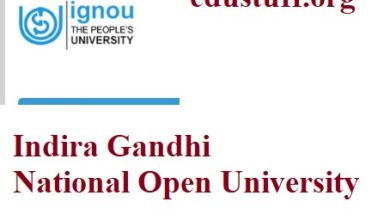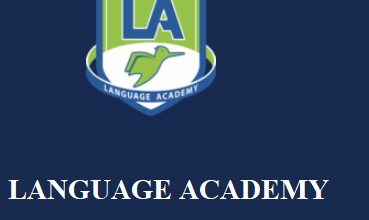
Best Courses to Study in Nigeria
Best Courses to Study in Nigeria
Welcome to the world of education in Nigeria! Deciding on the right course to study is a crucial step that will significantly impact your future success. In this blog post, we’ll explore the best courses to study in Nigeria, covering various fields that cater to different interests, passions, and career opportunities.
Understanding the Nigerian Educational System: Before we dive into the courses, let’s get a brief overview of the Nigerian educational system. It comprises pre-tertiary education, including primary and secondary schools, and tertiary education, which includes universities, polytechnics, and colleges.
Recommended Content: Best Art Courses To Study In Nigeria
Below are the lists of Best Courses to Study in Nigeria
Business and Management Courses:
- Study the fundamentals of business management, including finance, marketing, human resources, and operations.
- Learn how to lead and make strategic decisions in a corporate setting or as an entrepreneur.
- Acquire essential skills in problem-solving, communication, and teamwork.
- Master the art of financial management, auditing, and tax planning.
- Become proficient in financial reporting and analysis, which are vital for businesses and organizations.
- Develop critical thinking skills and attention to detail for accurate financial analysis.
- Explore the world of advertising, consumer behaviour, and market research.
- Learn to create effective marketing campaigns to reach target audiences.
- Develop persuasive communication skills to drive sales and brand recognition.
- Foster a mindset of innovation and risk-taking to start and manage successful ventures.
- Understand business development, opportunity assessment, and resource management.
- Embrace creativity and adaptability to thrive in dynamic business environments.
Technology and Engineering Courses:
- Delve into programming languages, algorithms, and software development.
- Explore artificial intelligence, machine learning, and data science for technological advancements.
- Gain problem-solving skills essential for resolving complex computational challenges.
- Learn about electrical circuits, power systems, and electronic devices.
- Understand the design and maintenance of electrical systems for various industries.
- Contribute to technological innovations that impact daily life and industry.
- Get hands-on experience in designing and constructing infrastructure projects.
- Study structural engineering, environmental engineering, and transportation systems.
- Play a vital role in developing Nigeria’s infrastructure and urbanization.
- Focus on managing and utilizing information systems in organizations.
- Learn about cyber security, database management, and network administration.
- Become proficient in solving IT-related issues and ensuring data security.
Health and Medical Courses:
- Study medical sciences, anatomy, and physiology to become a medical doctor.
- Gain practical experience through clinical rotations and internships.
- Play a crucial role in healthcare, diagnosing and treating patients’ illnesses.
- Learn essential nursing skills and techniques to provide quality patient care.
- Specialize in midwifery to support expectant mothers during pregnancy and childbirth.
- Contribute to healthcare teams in hospitals, clinics, and community settings.
- Study pharmaceutical sciences, drug interactions, and patient care.
- Become an integral part of the healthcare system by dispensing medications and offering advice.
- Contribute to research and development of new drugs and therapies.
- Perform vital diagnostic tests on patient samples, aiding in disease detection and treatment.
- Learn to operate and maintain laboratory equipment with precision.
- Collaborate with healthcare professionals to provide accurate and timely results.
Arts and Humanities Courses:
- Develop skills in journalism, media production, and public relations.
- Learn to disseminate information and influence public opinion ethically.
- Contribute to the media industry through storytelling and reporting.
- Analyze literary works and understand their cultural and historical contexts.
- Enhance communication skills and critical thinking through literature studies.
- Pursue careers in teaching, writing, or the media industry.
- Explore past events and their impact on societies and global affairs.
- Gain insights into cultural heritage, diplomacy, and international relations.
- Contribute to research and policymaking in historical and international contexts.
- Study the structure, evolution, and variation of languages.
- Become proficient in multiple languages, fostering cross-cultural communication.
- Contribute to language preservation and documentation.
Social Sciences Courses:
- Analyze economic principles and their influence on markets and policies.
- Understand macro and microeconomic factors affecting businesses and governments.
- Contribute to economic research and policy-making for sustainable development.
- Study human behaviour, cognition, and mental processes.
- Gain insights into psychological disorders and therapeutic interventions.
- Pursue careers in counselling, research, or organizational psychology.
- Explore political systems, governance, and public policy.
- Analyze political ideologies, international relations, and diplomatic affairs.
- Contribute to the understanding of politics and governance.
- Examine social structures, interactions, and societal changes.
- Address social issues such as inequality, crime, and cultural dynamics.
- Contribute to social research and community development.
Natural and Applied Sciences Courses:
- Discover the properties and reactions of chemical elements and compounds.
- Contribute to advancements in pharmaceuticals, materials, and environmental science.
- pursue careers in research, academia, or industry.
- Understand the fundamental laws governing the universe and its phenomena.
- Apply physics principles in technological innovations and engineering.
- Contribute to advancements in fields like astrophysics and quantum mechanics.
- Master mathematical concepts and problem-solving techniques.
- Contribute to scientific research, finance, cryptography, and data analysis.
- pursue careers in academia, finance, or technology.
- Study environmental issues, conservation, and sustainable development.
- Contribute to environmental research and policy-making for a greener future.
- Pursue careers in environmental management and consultancy.
Law and Legal Studies:
- Bachelor of Laws (LLB):
- Acquire foundational legal knowledge and principles.
- Develop critical thinking and legal research skills.
- Pursue a legal career as a lawyer or legal consultant.
- Learn about legal systems, ethics, and jurisprudence.
- Gain insights into legal processes and the administration of justice.
- Pursue careers in legal administration or paralegal roles.
Education Courses:
- Understand child development and educational theories for young learners.
- Learn effective teaching methods for early childhood education.
- Contribute to the foundation of a child’s education.
- Specialize in teaching specific subjects to secondary school students.
- Learn classroom management and curriculum development techniques.
- Shape the academic growth of adolescents.
- Study learning theories and how individuals acquire knowledge.
- Understand psychological factors influencing learning and behaviour.
- Apply psychological principles in educational settings.
- Develop skills to cater to the unique needs of students with disabilities.
- Advocate for inclusive education and promote equal opportunities for all.
- Contribute to enhancing the learning experience for special needs students.
Agriculture and Agricultural Science Courses:
- Combine agricultural principles with economic concepts.
- Explore sustainable agricultural practices and food security.
- Contribute to rural development and agricultural policy-making.
- Study crop production, soil management, and plant genetics.
- Contribute to increasing agricultural productivity and sustainability.
- Pursue careers in agricultural research or farm management.
- Learn about animal behaviour, nutrition, and health.
- Contribute to livestock management and improved breeding practices.
- Pursue careers in animal research, veterinary medicine, or livestock production.
- Explore plant breeding, genetics, and biotechnology.
- Contribute to the development of high-yield and disease-resistant crops.
- Work in agricultural research, seed production, or crop management.
Environmental and Sustainability Courses:
- Study strategies for mitigating environmental challenges.
- Learn about waste management, pollution control, and conservation.
- Contribute to sustainability initiatives in both public and private sectors.
- Focus on alternative energy sources such as solar, wind, and bioenergy.
- Contribute to reducing Nigeria’s dependence on fossil fuels and promoting clean energy.
- Pursue careers in renewable energy research, project management, or policy-making.
- Study approaches to balancing economic, social, and environmental concerns.
- Explore ways to improve living standards while preserving natural resources.
- Contribute to sustainable development projects and initiatives.
- Learn about preserving biodiversity and protecting ecosystems.
- Study endangered species, habitat restoration, and wildlife management.
- Contribute to conservation efforts and environmental advocacy.
Media and Communication Courses:
- Develop skills in news reporting, investigative journalism, and feature writing.
- Learn ethical journalism practices and media law.
- Pursue careers in print, digital, or broadcast journalism.
- Study strategic communication and reputation management for organizations.
- Learn crisis communication and media relations.
- Contribute to building positive brand images and public perception.
- Explore radio and television production, scriptwriting, and editing.
- Learn about broadcasting regulations and audience engagement.
- Pursue careers in radio and television broadcasting, production, or presenting
Fine Arts and Design Courses:
- Express creativity through painting, sculpture, or mixed media art.
- Learn art history and contemporary art movements.
- Pursue careers as a professional artist, art educator, or art curator.
Tourism and Hospitality Courses:
- Learn hotel and restaurant operations and guest services.
- Develop skills in hospitality marketing and event management.
- Pursue careers in hotel management, hospitality consulting, or event planning.
- Plan and execute various events, from corporate conferences to weddings.
- Develop organizational and multitasking skills.
- Contribute to successful and memorable events for clients and attendees.
Sports Science and Physical Education Courses:
- Learn teaching techniques for physical education classes.
- Develop curricula for sports and fitness education.
- Contribute to nurturing a culture of physical activity and wellness in schools.
- Focus on the business and administrative aspects of sports organizations.
- Learn about sports marketing, sponsorship, and event planning.
- Contribute to the smooth functioning of sports teams, clubs, and associations.
Architecture and Urban Planning Courses:
- Explore architectural design, building materials, and construction techniques.
- Learn about sustainable architecture and energy-efficient buildings.
- Contribute to shaping the physical environment with innovative architectural designs.
- Study urban development, land use, and city infrastructure.
- Learn about urban sustainability and community planning.
- Contribute to creating livable and well-planned urban spaces.
Music and Performing Arts Courses:
- Develop musical skills in performance, composition, or music production.
- Learn about music theory, history, and cultural influences.
- Contribute to the music industry as a performer, composer, or music educator.
- Study acting, directing, and stagecraft for theatre productions.
- Explore various theatrical genres and dramatic techniques.
- Contribute to the performing arts as an actor, director, or playwright.
Recommended Content: Low Competitive Courses to Study in Nigeria 2023
Factors to Consider When Choosing a Course:
When making this life-changing decision, several factors should be taken into account:
- Personal Interests and Passions: Pursuing a course aligned with your interests ensures that you’ll stay motivated and engaged throughout your academic journey.
- Job Market Demand and Opportunities: Researching the job market demand for specific courses will give you an idea of potential career opportunities after graduation.
- Future Growth Prospects: Consider the long-term growth prospects of your chosen field to ensure it remains relevant and in demand in the coming years.
- Your Strengths and Skills: Identifying your strengths and skills can help you select a course where you can excel and contribute effectively.
Recommended Content: Is Biochemistry a Good Course to Study in Nigeria?
Conclusion:
Choosing the right course to study in Nigeria is a pivotal decision that can shape your entire career and life journey. Take the time to explore your interests, assess the job market, and consider your strengths. Remember, education is not only about acquiring knowledge but also about personal growth and fulfilment. Whatever course you choose, make the most of your academic experience and seize the opportunities that come your






